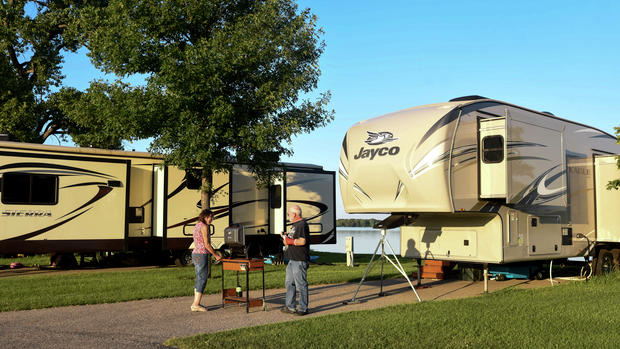WILLMAR—Kandiyohi County will deliver a strong nudge this coming year to get the public to make reservations online for campsites at its county parks.
When reservations open Jan. 14 for the 2019 camping season, the first two weeks will be set aside for those who register and pay online. Phone reservations won’t open until Jan. 29.
And the message to make reservations online and pay with a credit card will be repeated often throughout the season.
It’s going to be the lead-up to 2020, when the county plans to switch to online-only campsite reservations. Paying by check also will be phased out in 2020.
Five of the seven county parks have campsites available: two parks on Big Kandiyohi Lake, one on Diamond Lake, one on Green Lake and one on Games Lake.
The policy change was approved this past week at a meeting of the County Board of Commissioners.
The goal is to be consistent in how reservations are made and fees are collected, said Larry Kleindl, county administrator.
“We want to encourage people to do their reservations online and pay by credit card,” he said.
Kandiyohi County piloted an online reservation system in 2017 and implemented it fully this year. In an increasingly digital world, it was something the public wanted and asked for, Kleindl said.
But a review this fall showed that many campers didn’t use the system, he said. “The majority of the reservations are still being made by phone calls.”
It’s not clear why. It’s possible that many people simply don’t know they can now reserve their campsite online, Kleindl said.
“How do we get the public aware of the online system?” he wondered.
Moving exclusively to online reservations will be a change for the public, and it won’t necessarily be welcomed by everyone.
Becky Lingl of Bird Island showed up in person at the County Board meeting to voice her concerns.
Lingl, 77, said she and her husband have camped at one of the parks on Big Kandiyohi Lake every summer since 1994. “I would like to come to the same park,” she said.
But she wasn’t happy at the prospect of having to register online. “I can’t do your computer thing,” she told the County Commissioners.
The board showed little sign of backing down, however. Kleindl pointed to precedents elsewhere, noting that online is now the only option for reserving a spot at a Minnesota State Park.
Rollie Nissen, chairman of the County Board, said he isn’t especially computer-savvy either, but “I have grandchildren that can help me.”
Requiring campers to pay by credit card also should help eliminate ongoing issues with campers who don’t pay or pay with a check that’s returned for insufficient funds, Kleindl said.
One of the benefits of the online registration system is the data it generates, he said. It’s now possible to track campsite occupancy rates, which sites are the most utilized, and peak times in the season.
This is information that can be used for park planning and improvement, Kleindl said. “I think that is going to be very helpful going forward.”
Kandiyohi County is in the first phase of developing a master plan for its park system. The consultants met recently with park managers and are putting together an inventory and wish list for the parks. Next month each County Commissioner will be asked to appoint someone from their district to serve on a task force that will be working more closely with the master plan.
One potential outcome of the master plan is a change in the rates charged for campsite use. Rates are staying the same for 2019 but they’ll be examined in upcoming months to determine how Kandiyohi County stacks up against similar parks and campgrounds.
It’s important for the county’s rates to be competitive “but we also want to cover our costs as well as we can,” Kleindl said.
West Central Tribune by Anne Polta

